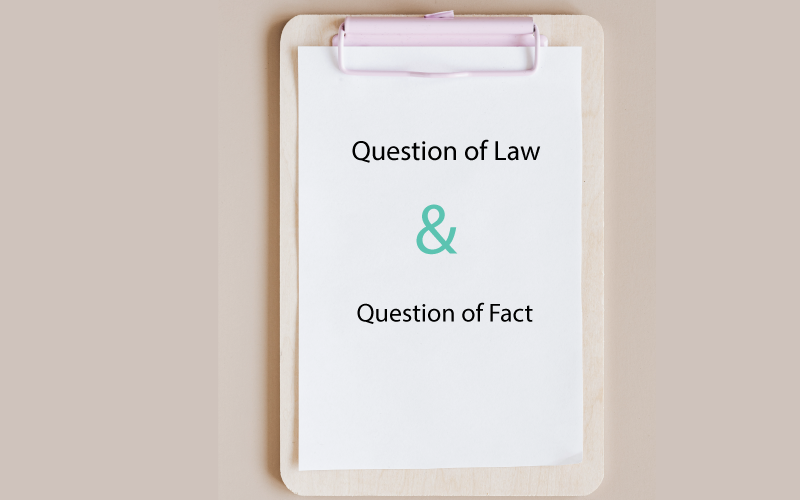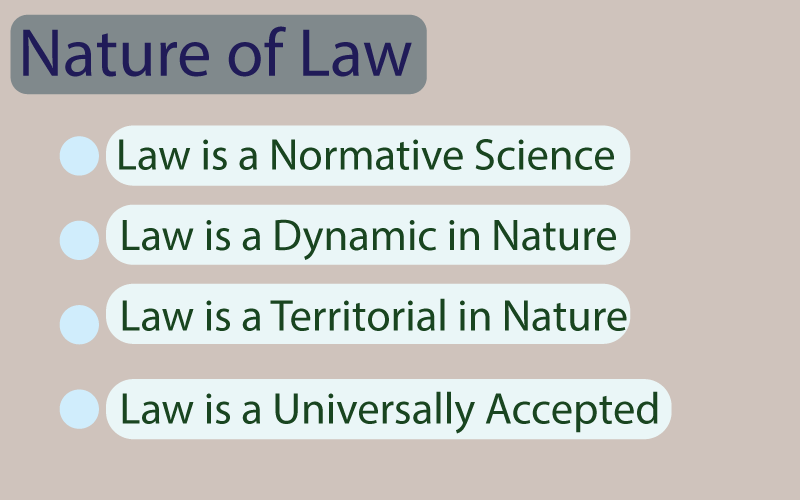The two most important things that come before the court is a question of law and question of fact. Both of these two are important for judgment. In this blog, we will talk about these two along with question of law vs question of fact, what is law, the nature of law, and the value of law. Also, we have discussed presumptions of law & fact.
What is Law
Roman: According to Romanian, law is a parameter of just and unjust.
Ancient India: In ancient India, the idea of law was all about Dharma. According to Ancient India, law is required to create harmony with the entire universe. This is called natural order.
Positive Definition: Law is a set of rules created by political superior to man as a political subject. Legislation is an example of this one.
Sociological Definition: Law is essentially and exclusively utilized as a social fact.
Realistic Definition: According to this, laws are what the courts actually decide.
Nature of Law
- Law brings a lot of scientific factors like right, wrong, exception, punishment, etc. That’s why the law is a normative science.
- Law keeps changing based on the requirements of society. One of the major examples of this one is homosexuality in the IPC. Because the society is changing. Law is dynamic in nature.
- Law depends on the territory too. Because there are many laws in India and Bangladesh that are not in other places too.
- Laws might be different in different territories but they are universally accepted subjects.
Value Of Law
- Law is a result of excessive study and research. Many jurists and scholars have researched on it for decades. That’s why it has a lot of weightage.
- It is a result of legal, political, social and psychological thoughts (criminology).
- It has educational value. You can become a lawyer, barrister, solicitor, judge, attorney as a career option.
- It is a growing concept. Just some years ago, anyone couldn’t even think about Cyber Crime related law or a major breakthrough in Intellectual property related law. As these things are growing, the law makers have to make law on these issues.
- It is more of a practical subject. Let’s say in science, a student has to read many concepts like how a rocket is made from a particular formula and all. This thing is more of hypothetical thing for most of the students. But when someone studies law, he or she can apply most of it in real life.
Question of law & Question of Fact
The responsibility of court is basically to give answers to all the questions coming inside the court hall. Now to find the answer there are two options. One is laws and the second one is the facts. The answers that are from the help of law is called question of law and the answers that are from the facts are called question of facts.
Question of Law
- The question of law is related to interpretation and the judiciary does it. For example, there are many laws in every country. The judiciary decides which law to apply and which to exclude. This is question of law. When the judiciary wants to interpret a law then the question of law comes. So, question of law is related to interpretation.
- It is answered by fixed rules of law.
- It is answered by judges.
- It is called the Point of law.
- It can’t be converted. It is a constant thing.
- Example: What is murder, dacoity, theft, etc. All these are explained in IPC.
Question of Fact
- For question of law, the court actually finds the answer with help of rules available under different laws and legislations. When the court fails to do so, it seeks help from the higher courts. Sometimes, after judgment, the victim goes to higher courts for better judgment. But not all the problems can have answered in the law itself. In that time, the court uses facts or evidence as help. It is called the question of facts. One important aspect of question of fact is that it is only bothering about the evidence of proof available. It doesn’t consider on what kinds of opinion is available. There is only opportunity for the matter of facts.
- Questions other than particular law is question of fact.
- It is answered by the parties.
- It is called Point of fact.
- It can be converted into a question of law.
- Example: In the question of law, we saw what is murder but here in the question of law, we get to whether the person is a murderer or not in light of the evidence.
Mixed Question of Law & Fact
Just like the title, it is mixed of law and fact. In this case, there are some questions jointly related to both law and fact. Here is an example to illustrate this.
There is a dispute regarding a partnership matter between A and B.
Here question of fact is, what was the relation between A and B and nature of their work.
Question of law is, whether the behavior between the parties would constitute as partnership between the two parties.
Presumptions – Law & Fact
- The court may presume fact. For example, A is dead because of a gunshot. When the police arrived, B is caught with a gun. As B is being caught red-handed, it may be presumed that B shot A.
- Shall Presume. It is rebuttable. For example, whenever a person is brought into the court, we call that person accused. But court always believes that such person is innocent. This is the presumption that the court starts the case with.
- Conclusive proof or irrebuttable presumption. In Section 82 of IPC, it is said that it won’t be an offence if a child under 7 years of age did that.
These were all about question of law and question of fact. Click here to read all jurisprudence related articles.
- What is Mens Rea and Actus Reus - February 13, 2024
- Case Summary of Anglo Norwegian Fisheries Case | United Kingdom V Norway - April 7, 2023
- What is a Solicitor? How to Become One - January 9, 2023


